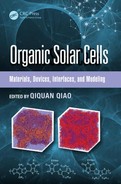

Most ebook files are in PDF format, so you can easily read them using various software such as Foxit Reader or directly on the Google Chrome browser.
Some ebook files are released by publishers in other formats such as .awz, .mobi, .epub, .fb2, etc. You may need to install specific software to read these formats on mobile/PC, such as Calibre.
Please read the tutorial at this link: https://ebookbell.com/faq
We offer FREE conversion to the popular formats you request; however, this may take some time. Therefore, right after payment, please email us, and we will try to provide the service as quickly as possible.
For some exceptional file formats or broken links (if any), please refrain from opening any disputes. Instead, email us first, and we will try to assist within a maximum of 6 hours.
EbookBell Team

4.0
6 reviewsCurrent energy consumption mainly depends on fossil fuels that are limited and can cause environmental issues such as greenhouse gas emissions and global warming. These factors have stimulated the search for alternate, clean, and renewable energy sources. Solar cells are some of the most promising clean and readily available energy sources. Plus, the successful utilization of solar energy can help reduce the dependence on fossil fuels. Recently, organic solar cells have gained extensive attention as a next-generation photovoltaic technology due to their light weight, mechanical flexibility, and solution-based cost-effective processing.
Organic Solar Cells: Materials, Devices, Interfaces, and Modeling provides an in-depth understanding of the current state of the art of organic solar cell technology. Encompassing the full spectrum of organic solar cell materials, modeling and simulation, and device physics and engineering, this comprehensive text:
Organic Solar Cells: Materials, Devices, Interfaces, and Modeling makes an ideal reference for scientists and engineers as well as researchers and students entering the field from broad disciplines including chemistry, material science and engineering, physics, nanotechnology, nanoscience, and electrical engineering.